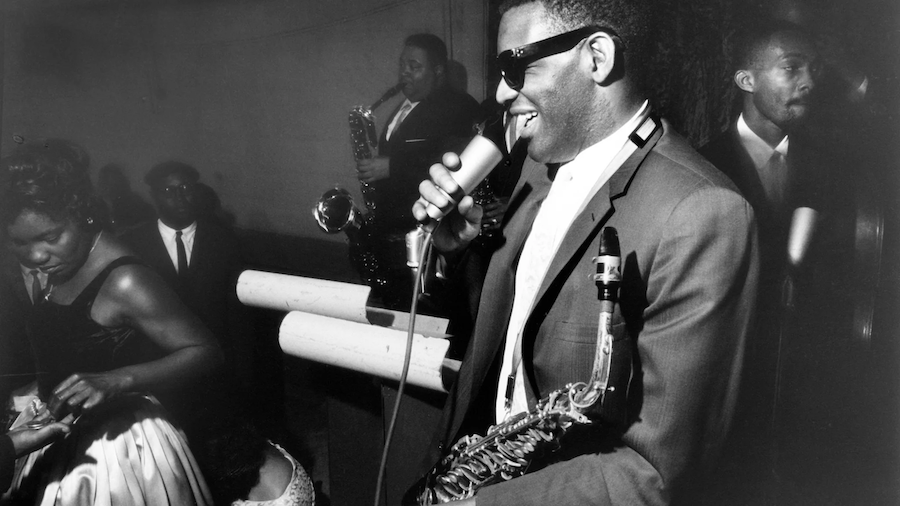Termination rights give authors and their heirs the opportunity to recapture ownership of their copyrights, though the process is often complex and arduous.
In the following extract from his new book, Leaving The Building: The Lucrative Afterlife of Music Estates, journalist Eamonn Forde details how Ray Charles’ children fought to reclaim the rights to their father’s works.

Working with the majority of Ray Charles’s children, he succeeded in enforcing the termination rights that saw the return of over 100 songs, including undeniable classics such as ‘I Got a Woman’ and ‘Fool for You’, from Warner/Chappell Music Publishing. The initial termination move happened in 2010 and the publisher did not challenge the notices; but that was not to be the sticking point here.
The move, however, brought forth a protracted battle between the children and the Ray Charles Foundation which, as covered in Chapter 3, was a relationship defined by almost biblical animosity and bad blood. The Foundation was named his sole beneficiary in his will and the children received an irrevocable trust of $500,000 each but had to waive the right to any future claim against the estate. Toberoff tells me,
Various laws in the United States have anti-SLAPP laws. Those laws are basically tied to an exercise of free speech or the right of petition. The right to petition is defined as things like filing a court action or filing a complaint with an administrative body. They don’t want people retaliated against for filing complaints or being a whistleblower or anything of that nature. You have to qualify under the statute as the exercise of First Amendment rights or the right of petition. I filed an anti-SLAPP motion. I showed the court that this was an exercise of the right of petition, that you had to file termination notices with the Copyright Act. We won that anti-SLAPP motion and they dismissed their breach of contract action and other retaliatory actions.
In January 2013, the courts, presided over by US District Judge Audrey Collins, in the ongoing dispute between seven of Charles’s 12 children and the Ray Charles Foundation, which had been headed up in its early years by Joe Adams (the manager of Charles since 1961), ruled in favour of the children. It permitted them to move to reclaim the rights in an initial batch of 60 compositions. The Ray Charles Foundation said it would appeal.
“The very clear and unmistakable intention of both Ray Charles and all his children was that, in exchange for a substantial payment, the children were not to raise any claims against their father’s estate,” said Valerie Ervin, the president of the Ray Charles Foundation. “The law is very unsettled in these matters and we intend to seek resolution through the courts.”
“The termination provision specifically gives spouses, children and grandchildren an inalienable right after decades to recover their parents’ or spouses’ copyrights by simply serving notices of termination on the grantees.”
It went to the 9th Circuit (the equivalent of the Court of Appeal in the UK) in 2015, with Mark D. Passin, the attorney for the Ray Charles Foundation, arguing in February that year that Judge Collins had, in her 2013 ruling, overlooked a US Copyright Office regulation that should have protected “beneficial” owners such as the foundation. “The termination provision specifically gives spouses, children and grandchildren an inalienable right after decades to recover their parents’ or spouses’ copyrights by simply serving notices of termination on the grantees,” said Toberoff at the time.
At the end of July 2015, however, 9th Circuit sided with the Ray Charles Foundation and overturned the 2013 decision. “The Foundation alleges injury to its interest in continuing to receive the royalty stream generated by Charles’s works, which is the same interest that the Terminating Heirs seek to redirect to themselves,” wrote Morgan Christen, the judge in the case, giving the Ray Charles Foundation the right to challenge the heirs’ terminations.
Toberoff says this was a significant case because these are related to rights that default to statutory heirs – surviving spouses, children or grandchildren – and are not affected by anything outlined in a will. These statutory heirs automatically inherit the author’s termination right. “People don’t realise that, but that’s a very powerful aspect – and also relevant to estate planning – of the termination provision,” he says. “It sometimes helps to reset the playing field and it opens up a whole area which has to do with people who are disinherited who actually still have rights.”
Speaking in summer 2020, Toberoff says the ruling from the chief justice of the District Court in the central district in California upholding the children’s right to seek termination in Charles’s compositions is still in place. “I believe it’s a correct ruling,” he says. “What happened in that case was we also dismissed the copyright action saying that they don’t have standing.”
Getting these rights back allowed the Ray Charles heirs to then sell a majority share in the US publishing revenues of his pre-1964 compositions to Primary Wave in May 2020. Financial terms were not made public beyond it being described as a “multi-million [dollar] deal”.
Ken Abdo, a partner at legal firm Fox Rothschild, was one of the first US lawyers to represent writers in the US in a copyright termination filing. He filed on behalf of Lipps Inc (who had a global hit with ‘Funky Town’ in 1980) relating to post-1978 copyrights. “I did that in 2005, which was really early,” he says. “I got the notoriety of being a little ahead of the curve on these legacy acts.”
Publishing rights reverting back to the family of a deceased artist can sometimes go some way to offsetting the pain (and the financial losses) of other rights being taken out of their control. As noted in Chapter 3, the family of Ritchie Valens were unable to get his master recordings back from his former manager and promoter Bob Keane. However, at the end of 1987, all of his publishing rights reverted to his mother.
Isaac Hayes III says that chasing down copyright termination was one of his priorities when he took over the running of his father’s estate. “We started terminating his old publishing,” he says. “So all of his classic songwriting hit records, they get terminated and that publishing returns to the family. The post-1978 material was terminated in the fall of last year [2018]. Everything he [wrote] after 1978 terminated and came back to us.”
Taking back control of these rights gives the estate not just a bigger share of revenues from things like licensing; it also gives the estate total control over how and where they are licensed.
Taking back control of these rights gives the estate not just a bigger share of revenues from things like licensing; it also gives the estate total control over how and where they are licensed. “There’s pretty good hit records in there,” Hayes says of the compositions they pursued termination of. “‘Déjà Vu’ was a Grammy-nominated song.15 ‘A Few More Kisses to Go’ had been sampled [by acts including Snoop Dogg and Redman]. And then his pre-’78 works – he started as a songwriter in 1963 – came back in February of this year [2019]. So for the next four or five years, his classic songwriting songs like ‘Hold on, I’m Comin’’ and ‘Soul Man’ [both hits for Sam & Dave], all these songs are starting to come back to us. So we’ll have full control of the publishing.” This was also something of a righting of wrongs for the Hayes family as Isaac Hayes had lost many of his copyrights when he was declared bankrupt in 1976 as a result of Stax Records going bust the year before.
Rondor Music ended up with the publishing rights to the Stax music catalogue. Lance Freed, president of Rondor, said in 2008, just after Hayes died, that Hayes at the time of his bankruptcy was forced to sell his writer’s share for $30,000 and those compositions went on to generate vast sums of money.
With Stax going under, they were unable to pay Hayes the royalties he was due. “He was the biggest star on Stax and was bringing in 70 per cent of the income on the label when they had over 30 artists,” Hayes’ son claims, estimating that he lost out on an eight-figure sum at the time.
Isaac Hayes III clearly understands the monetary and strategic advantage of termination, but it is a very complex and arduous process to go through for estates. The more convoluted it is, the higher the lawyer fees can be, so this is sometimes simply not an option for small estates that see a modest turnover of revenue each year.
